 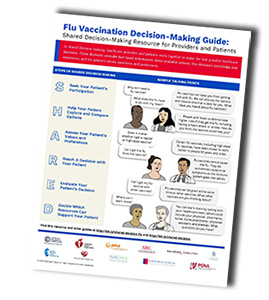 2023 Flu Decision Making 2023 Flu Decision Making
Guide (English) |
 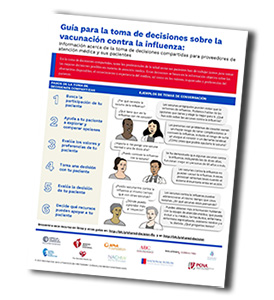 2023 Flu Decision Making 2023 Flu Decision Making
Guide (Spanish)
|

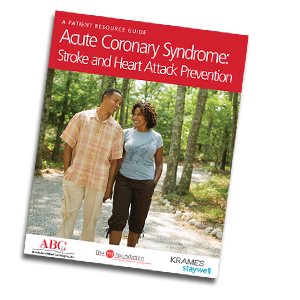
Acute Coronary Syndrome
Many people hear the term “acute coronary syndrome” related to heart attack. But just what is it?Acute coronary syndrome (ACS) is a life-threatening form of coronary heart disease (CHD) that occurs when the heart muscle does not receive enough oxygen-rich blood. ACS is a term used to describe myocardial infarction (MI), also known as a heart attack, and unstable angina, or sudden, severe chest pain that typically occurs when a person is at rest. |
|

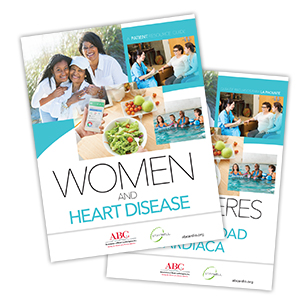
Women and Heart Disease
Over 44 million women are currently living with some form of cardiovascular disease. This guide has information to help you understand heart disease and its risk factors, tips for healthy eating and increasing your activity level, and support for making heart healthy choices.This guide includes informative videos and print tools that can support your efforts to lead a heart healthy life. There are links to additional resources to offer more support for you and your family. |


Cooking for Your Heart and Soul
Simple, delicious, plant-based recipes you can make to help keep your heart healthy. |

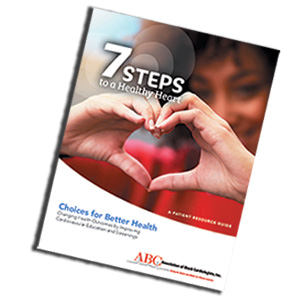 7 Steps to a Healthy Heart 7 Steps to a Healthy Heart
Featuring a page-turning format and a full multimedia experience, 7 Steps give you the tools you need to understand your condition and take steps to control it more effectively. You are encouraged to engage with 7 Steps in the format you’re most comfortable—through listening, reading, viewing, or all three. |

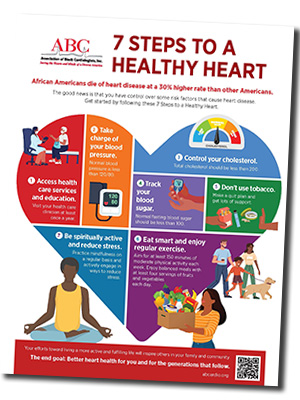 7 Steps to a Healthy Heart Infographic 7 Steps to a Healthy Heart Infographic
|

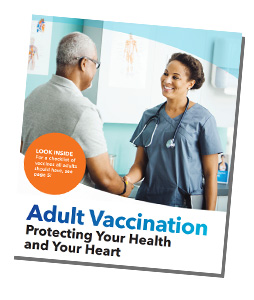
Adult Vaccination
Even though vaccines have reduced or eliminated many infectious diseases that were once harmful or deadly, thousands of adults in the U.S. are still susceptible because they have not been vaccinated. This informative guide will give you what you need to know about protecting your health. |

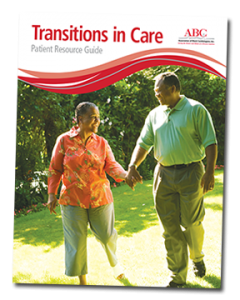
Transitions in Care
This easy-to-use resource designed to help your adult patients make the transition from hospital to home go as smoothly as possible. |

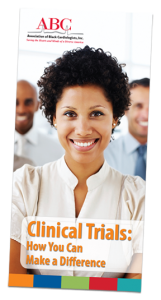 Clinical Trials Clinical Trials
Clinical Trials: How You Can Make a Difference is designed to help your patients understand the importance of clinical trials, why they should consider participating, and how clinical trials are conducted. |

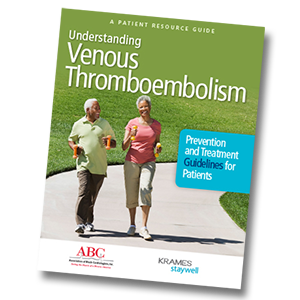
Venous Thromboembolism
This patient guide is designed to provide you with information and resources to better understand venous thromboembolism (VTE) and how it impacts your health. You’ll also learn about deep vein thrombosis (DVT) and pulmonary embolism (PE), and their signs, symptoms and treatment. This guide includes informative videos and print tools to help you find out more.
|

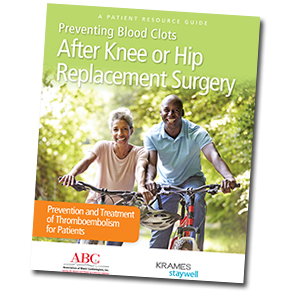
Preventing Blood Clots After Knee or Hip Replacement Surgery
This resource guide provides resources to physicians, hospitals, and patients to increase awareness of who is at risk for deep vein thrombosis (DVT) and pulmonary embolism (PE) after knee or hip replacement surgery, what symptoms to look for, and what can be done to prevent DVT and PE. |

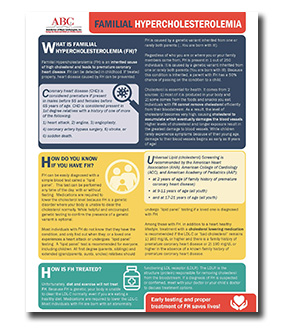
ABC Familial Hypercholesterolemia
Familial Hypercholesterolemia (FH) is an inherited cause of high cholesterol and leads to premature coronary heart disease. FH can be detected in childhood. If treated properly, heart disease caused by FH can be prevented. FH is caused by a genetic variant inherited from one or rarely both parents (…You are born with it!). Regardless of who you are or where you or your family
members come from, FH is present in 1 out of 250 individuals. It is caused by a genetic variant inherited from one or rarely both parents (You are born with it!). Because this condition is inherited, a parent with FH has a 50% chance of passing on the condition to a child. |
|
|



 2023 Flu Decision Making
2023 Flu Decision Making


 7 Steps to a Healthy Heart
7 Steps to a Healthy Heart





